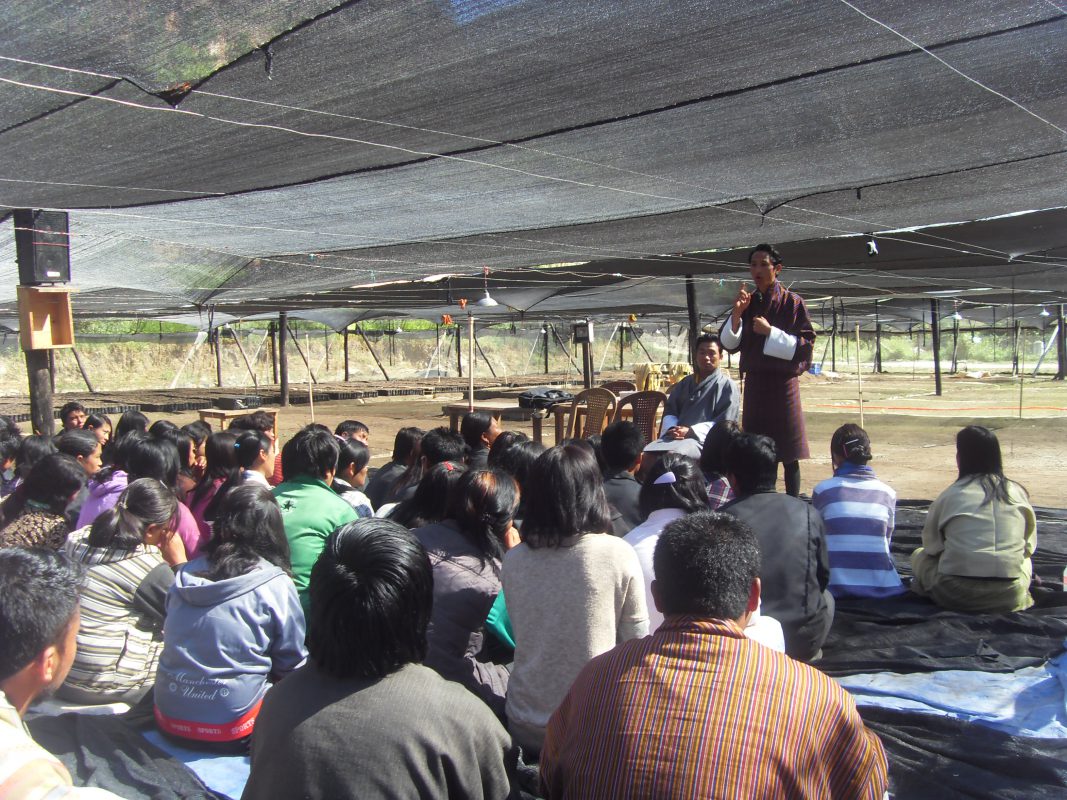Strategic Information and Research

Similar to any organization, research, evidence-building, and the meaningful utilization of information are crucial components of Lhak-Sam’s core interventions for prevention and mitigation efforts. Strengthening research capacity and data management systems is essential for designing evidence-based programs and interventions that yield positive overall health outcomes. A notable achievement has been made in effectively utilizing publicly available national and international HIV and AIDS prevalence, incidence, and demographic data, as well as evidence and documents, to inform policy development, program implementation, and advocacy efforts in a strategic manner. This approach has enabled us to design evidence-based interventions to deliberately influence policy and procedural improvements for the delivery of quality HIV prevention, testing, and treatment services. However, due to various constraints and barriers, no specific studies have been conducted to understand the specific needs and challenges faced by people living with HIV (PLHIV), including their social, economic, and legal aspects. Worth mentioning is that Bhutan recorded its first cases of HIV in 1993.
In a significant development, after 28 years of the HIV epidemic in the country, Lhak-Sam’s long-awaited and well-deserved people-centered study was finally carried out successfully in 2022. The study revealed that a major proportion of respondents lack employment and basic education, and regrettably, some live below the national living standard of BLSS 2017. Surprisingly, the prevalence of stigma and self-prejudice was higher than the <10% target set by the Global AIDS strategy for 2021-2026. Additionally, the number of people who perceived themselves as happy was lower compared to the BLSS 2017. Lhak-Sam intends to strategically and efficiently utilize these hard-earned pieces of evidence to improve the livelihood and psychological well-being of disadvantaged PLHIV and their children.
The information generated during our routine Community-Led Monitoring in collaboration with the Ministry of Health enables us to identify gaps in health settings in terms of PLHIV availability and access to quality non-discriminatory essential services. This information guides the design of appropriate programs to seek necessary improvements and changes in systems and procedures affecting PLHIV and KAPs’ access to services. This approach is expected to result in positive changes in PLHIV’s routine service-seeking behavior and in fostering a therapeutic relationship between healthcare providers and patients, ensuring one hundred percent treatment adherence among PLHIV, preventing deaths, and the spread of HIV.
Lhak-Sam will strive to build comprehensive evidence and advocate for the national validation of undetectable amounts of HIV in the blood as equivalent to un-transmittable (U=U). Recognizing HIV treatment as prevention will profoundly and positively impact the social perceptions of HIV-positive people as being infectious. This, in turn, will contribute to reducing social distrust, fear, stigma, and discrimination against PLHIV and their children, creating an enabling environment based on trust, dignity, and respect. Empowered individuals will be more likely to seek HIV services, significantly contributing to the national and international goal of ending AIDS by 2030, to which Bhutan is committed as a UN member state. Since 2013, Lhak-Sam has continued to publicly advocate for how HIV treatment works as prevention.
Furthermore, we have an intriguing plan to explore potential partnerships and donors to conduct a feasibility study on condom and contraceptive social marketing. The analytical report generated from this study will serve as the foundation for formulating an appropriate business plan to establish a shop for these commodities. This initiative aims to prevent diseases, unintended pregnancies, social stigmatization, discrimination, sickness, and death, thereby making a meaningful contribution to zero new HIV infections, zero discrimination, and zero AIDS-related deaths.
Evidence plays an essential role in ensuring proper planning for strategic information, partnership negotiations, and raising technical or donor support. To this end, we will seek support and assistance to further enhance our competency in research and strategic information.
